Canada Rail Volume Report: Commodities September 2023
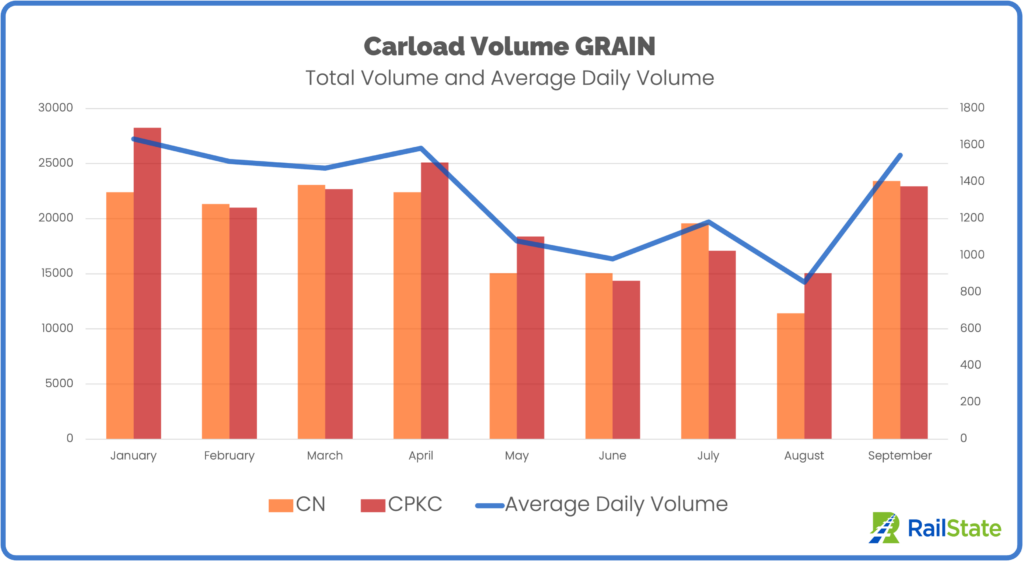

RailState, the rail industry’s only provider of real-time rail network visibility, independently tracks all freight rail movements across Canada in real-time.
This report covers movements of major commodities for export, including grain, coal, and potash.
Grain export carloads saw the biggest increase in September, as was expected with the start of the grain harvest season.
Overall grain carloads rose 75% from August. Carloads on CN increased 105% from the prior month and carloads on CPKC increased 52%. CN moved slightly more grain carloads than CPKC in September (23,410 compared to 22,940).
The overall daily average volume rose 81% in September, growing from 855 carloads per day to 1545.
We expect grain export volumes to continue to rise as we move into the heart of the harvest season.
In the chart below you’ll notice a dip in volumes from July into August. This was due to higher grain volumes in the first half of July. This coincided with the strike at the B.C. ports, during which most rail traffic slowed down but grain exports to the western ports increased because of open rail capacity and a Canadian law that requires grain products to continue to move regardless of a labor dispute.
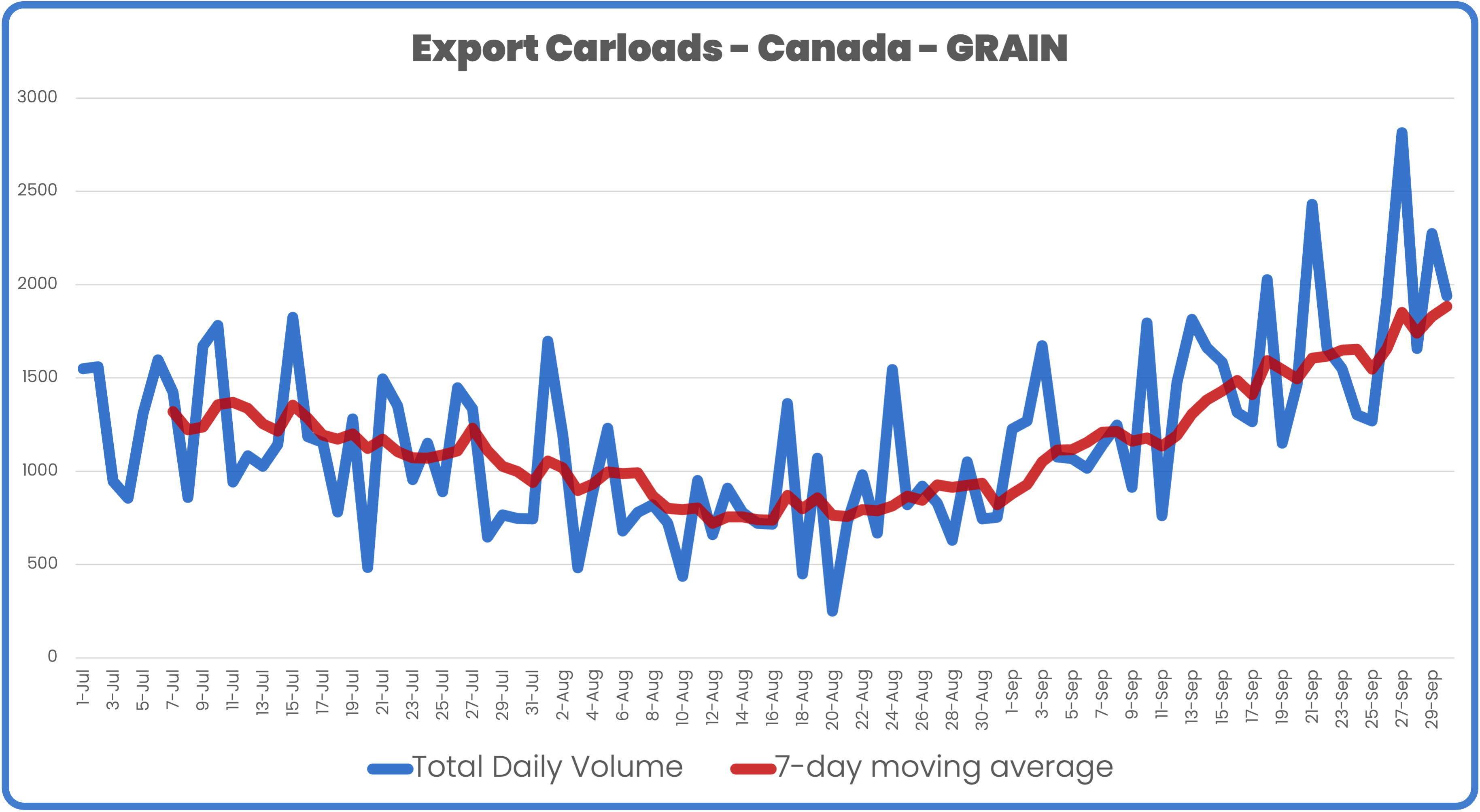
Coal carloads moving for export increased in September, rising 8.5% from August. September reversed a trend of moderate monthly declines throughout the summer. CN increased carload movements by 12.6% and CPKC grew by 6.7%.
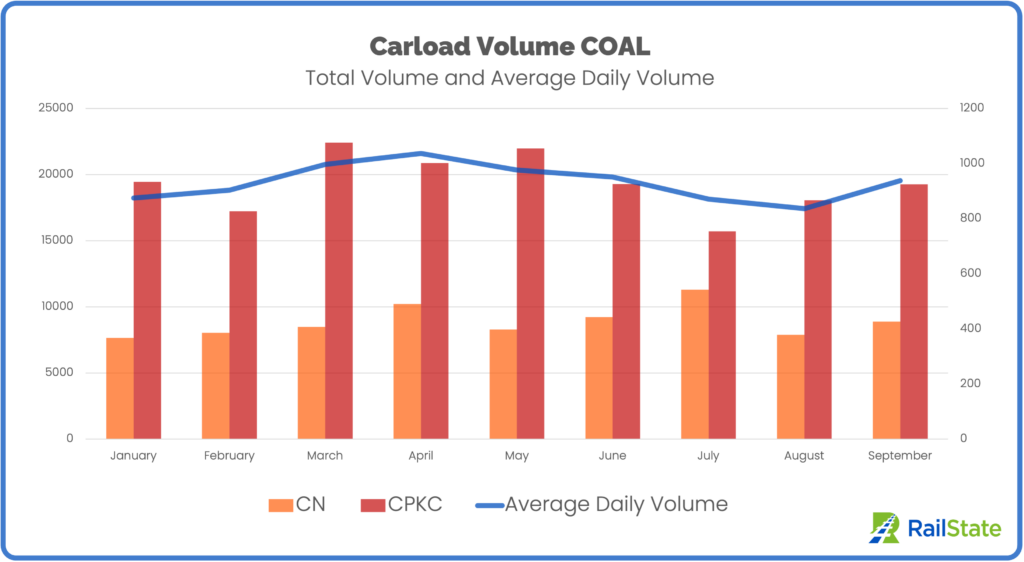
Overall average daily volume increased by 12.1%.
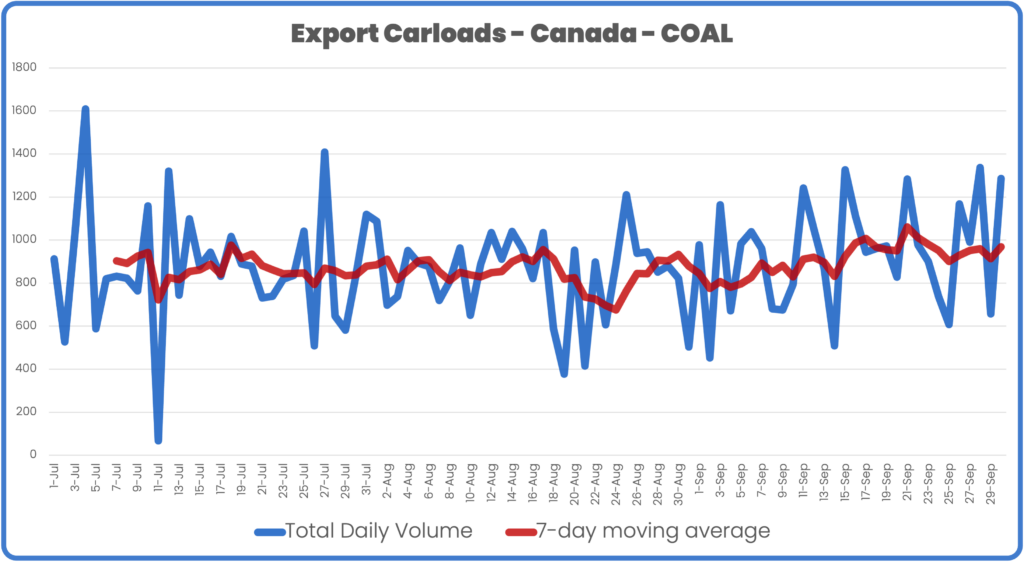
Total potash carloads grew 12.6% in September. CN showed a larger increase than CPKC, rising 20.6% compared to a 5.8% increase for CPKC. The market share for the two railroads was roughly equal in September, which is a significant departure from earlier in the year when CPKC was moving nearly twice as much potash as CN.
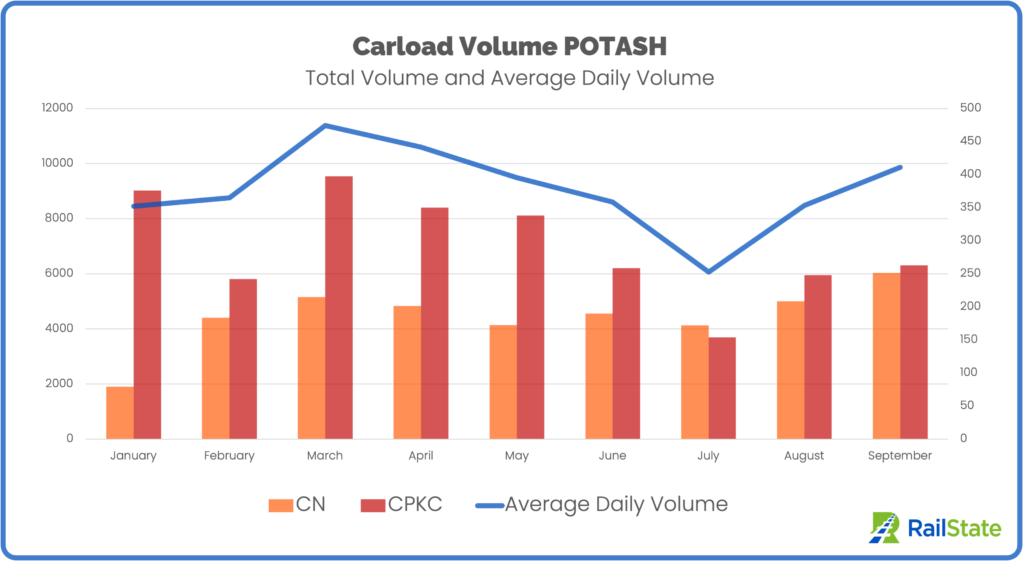
The overall average daily rate of potash carloads moving for export increased 16.3% in September. This increase is smaller than the increase in August. The 40% increase in carloads in August compared to July was in large part due to returning to “normal” after steep declines in potash volumes stemming from the strike at the western ports in July.
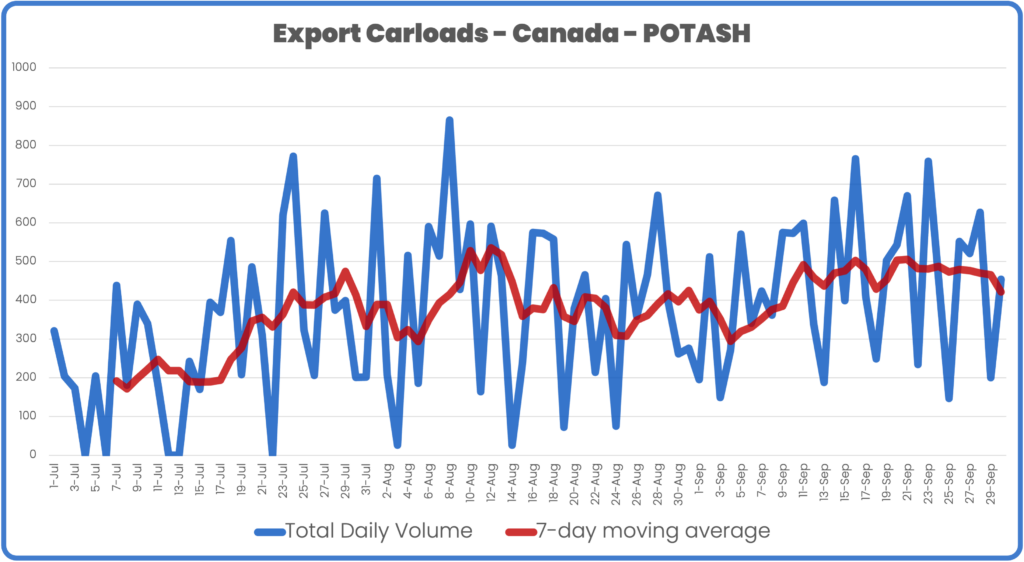
Schedule your in-depth demo today to explore how Rail Network Intelligence can unlock insights for your rail supply chain.
Copyright © 2025 RailState LLC